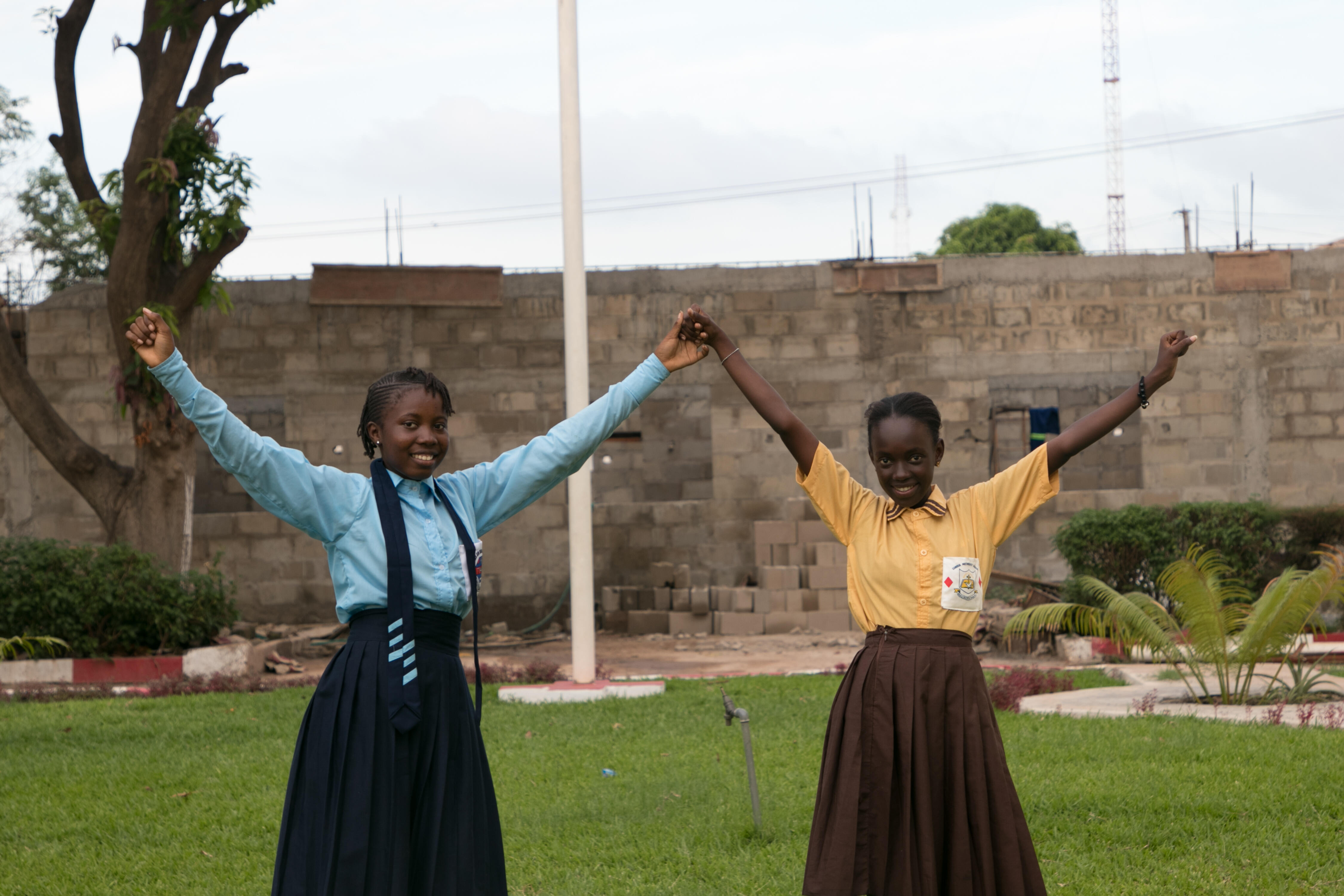Joint statement by UNFPA The Gambia Country Representative Kunle Adeniyi and UNICEF Gambia Country Representative Sandra Lattouf on the occasion of International Day of Zero Tolerance for Female Genital Mutilation
6 February 2020 – “When Mariama was growing up in rural Gambia, most of her peers were subjected to female genital mutilation – a human rights violation that 5 in every 10 girls in The Gambia between 0-14 years have gone through. Yet Mariama remains unharmed, thanks to her parents’ refusal to subject her to the practice, despite the enormous social pressure.
“On the International Day of Zero Tolerance for Female Genital Mutilation, we join with Mariama and young people in The Gambia who are standing up for their rights with urgency and energy. They are engaging their peers, families, communities and the government with a call to end this harmful act of gender-based violence once and for all, as promised by the international community in the 2030 Agenda for Sustainable Development.
“While significant progress in eliminating the practice has been made in the last decade, in The Gambia, thousands of girls and women alive today have had their genitals mutilated. This can lead to long-term physical, psychological and social consequences.
“Support for the practice is dwindling. Up to 49% of women in The Gambia believe that female genital mutilation should stop. Evidently, young girls are at much lower risk of being subjected to female genital mutilation than their mothers and grandmothers were – 75% of women between 15 and 49 years old have undergone FGM/C, compared to 50% of girls between 0-14 years old.
“As the dominant demographic force in The Gambia, young people can play a critical role in ending FGM. Unleashing the power of youth means investing in youth-led movements to champion gender equality, an end to violence against women and girls and the elimination of harmful practices. This requires including young people as partners when designing and implementing national action plans, building relationships with youth-led organizations and networks that work to end female genital mutilation and recognize it as a form of violence against women and girls, empowering young people to lead community campaigns that challenge social norms and myths, and engaging men and boys as allies.
“But this is not a goal young people can achieve alone, nor can it be addressed in isolation from other forms of violence against women and girls. It also requires strong political commitment and the participation of all stakeholders including communities and the private sector.
“Last year, at the Nairobi Summit on the International Conference on Population and Development, governments, including The Gambia Government, civil society, faith-based organisations and the private sector recommitted to ending gender-based violence and harmful practices - such as female genital mutilation - in 10 years, the same timeframe for achieving the Sustainable Development Goals.
In March, we mark 25 years since the Beijing Platform for Action, a global commitment to advance women’s rights across 12 critical areas, including the elimination of all harmful practices against girls and women. This year, we will announce the creation of a new Generation Equality to drive further investment and results for gender equality.
“Now is the time to invest, translating the political commitments already made into concrete action. Now is the time to do more and do it better and faster to end the practice once and for all. Now is the time to keep our promise to Mariama and all girls of reaching zero female genital mutilation by 2030.”
With only a decade remaining to achieve the Sustainable Development Goals, including SDG Target 5.3 - the elimination of harmful practices such as female genital mutilation by 2030 - we need to accelerate efforts across the country to eliminate female genital mutilation. When The Gambia Government and the UN system in The Gambia met in January 2020 to launch the Decade of Action - a period of renewed commitment and accelerated effort to achieve the SDGs, we all made a strong commitment. Part of that commitment is the drive to reduce the FGM prevalence rate in The Gambia from 76% to zero by 2030.
A Gambia free of FGM is a Gambia abounding in quality education, good health, safe motherhood, inclusive growth and economic prosperity. We are far from there, but we can be there!
***
About the UNICEF-UNFPA Joint Programme on the Elimination of FGM
UNFPA and UNICEF, lead the Joint Programme on the Elimination of Female Genital Mutilation, the largest global programme to end this harmful practice, currently focusing on 17 countries including The Gambia and also supports regional and global initiatives.
Launched in 2008 and now in its third phase of implementation, the Joint Programme has helped more than 3.2 million girls and women receive prevention, protection and care services related to FGM, while some 31.6 million people in more than 21,700 communities in 15 countries with high FGM prevalence have made public declarations to abandon the harmful practice.
UNFPA - The United Nations Population Fund is the agency charged with the mission to deliver a world where every pregnancy is wanted, every childbirth is safe and every young person's potential is fulfilled. To achieve this, the agency works towards realizing three transformative results:
- Ending unmet need for family planning
- Ending preventable maternal death
- Ending gender-based violence and harmful practices
UNICEF - UNICEF promotes the rights and wellbeing of every child, in everything we do. Together with our partners, we work in more than 190 countries and territories to translate that commitment into practical action, focusing special effort on reaching the most vulnerable and excluded children, to the benefit of all children, everywhere.
Media contacts:
Haddy Jonga, Programme Analyst - Communications, UNFPA The Gambia jonga@unfpa.org
Abdoulie Sey, Communication Officer, UNICEF Gambia asey@unicef.org


